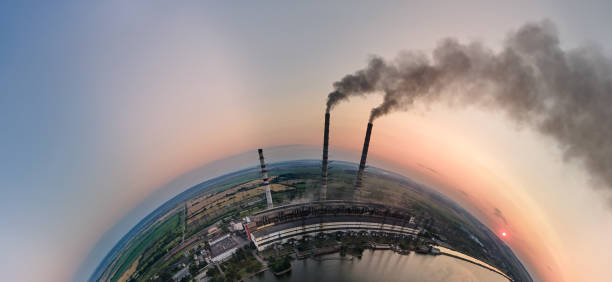
![]()
Ireland’s energy related emissions are now at their lowest level in over 30 years, falling a further 1.3% last year.
This marks an overall decrease of 11% since carbon emissions targets were introduced in 2021 and the third consecutive year with an emissions reduction.
This drop in emissions comes, despite an increase in overall energy use – which grew by 2.3% last year.
Increased use of bioenergy and technologies such as solar PV and heat-pumps meant that renewable energy supplied 14.5% of Ireland’s energy requirements last year, a slight increase on last year’s figure of 14%.
SEAI estimates that emissions from the electricity sector were down by 7.5% on 2023 figures.
Although renewable generation capacity increased from 2023, renewables supplied a slightly lower share of Ireland’s electricity than in 2023.
This is explained by the increase in electricity demand outpacing the increase in renewable generation, as well as grid constraints and lower wind outputs.
The top three sources of electricity in Ireland last year were again natural gas (42.1%), wind (31.7%), and net-imports from interconnectors (14%).
Commenting on the Interim Energy Balance results, Margie McCarthy, Director of Research and Policy Insights at SEAI said:
“Increased energy demand challenges our ability to meaningfully grow our renewable energy share of generation. The data shows two clear messages – if we are to meet our targets, we have no time to wait, we need to accelerate our deployment of renewable energy technologies and we have to make wise decisions on energy demand growth.”-
“We must continue to invest in renewable technologies and interconnectors, we must continue to retrofit our housing and public building stock, and we must continue to move to more active and public transport options where possible. Only with collective effort and buy in will we achieve the changes needed in our consumption behaviours to realise the energy transition.”
Transport emissions were down by just 1.2% year on year, despite significant advancements in biofuel blending, and despite progress in the EV transition.
Over-reliance on private vehicles continues to erode this progress. Meanwhile, heating emissions increased by 2.4%, likely because 2024 was cooler than 2023, though 2024 temperatures remained above average.
Margie McCarthy, Director of Research and Policy Insights, said:
“The longer we wait to take meaningful action, the harder it will be to achieve our climate commitments. The reality is that multiple global crises gave us a head start in our energy reduction efforts, where Covid-reduced travel, and energy price increases, plus warmer than average winters have all played a role in reducing our national emissions to date. Yet we still remain short of where we need to get to.
“The good news is that we know what needs to be done to reach our targets. Our data enables us to be hopeful about the Ireland we want in the future and how we can all make changes now to realise prosperous, healthier and cleaner lives. But it will require a collective commitment to supporting this critical change. Driving and supporting climate action at a national and local level is needed. As individuals, we need to embrace renewable technologies and energy efficiency efforts in our local areas, reduce our reliance on private vehicles and think more about how we are using our heat and electricity. On a policy level, we need to grow investment in renewable and grid technologies to increase our renewable energy outputs. Additionally, we need to fully understand what supports are required for people making the transition, in particular for those least able to do so on their own. We need to attract people and businesses to develop and train in the skills necessary to build a bigger supply chain and we need more people taking up supports to improve their energy efficiency.
“A successful energy transition will benefit us all. It will mean improved air quality, more comfortable homes, and an economy built on sustainable industries and jobs. It’s time to make the hard choice needed to deliver a better energy future.”